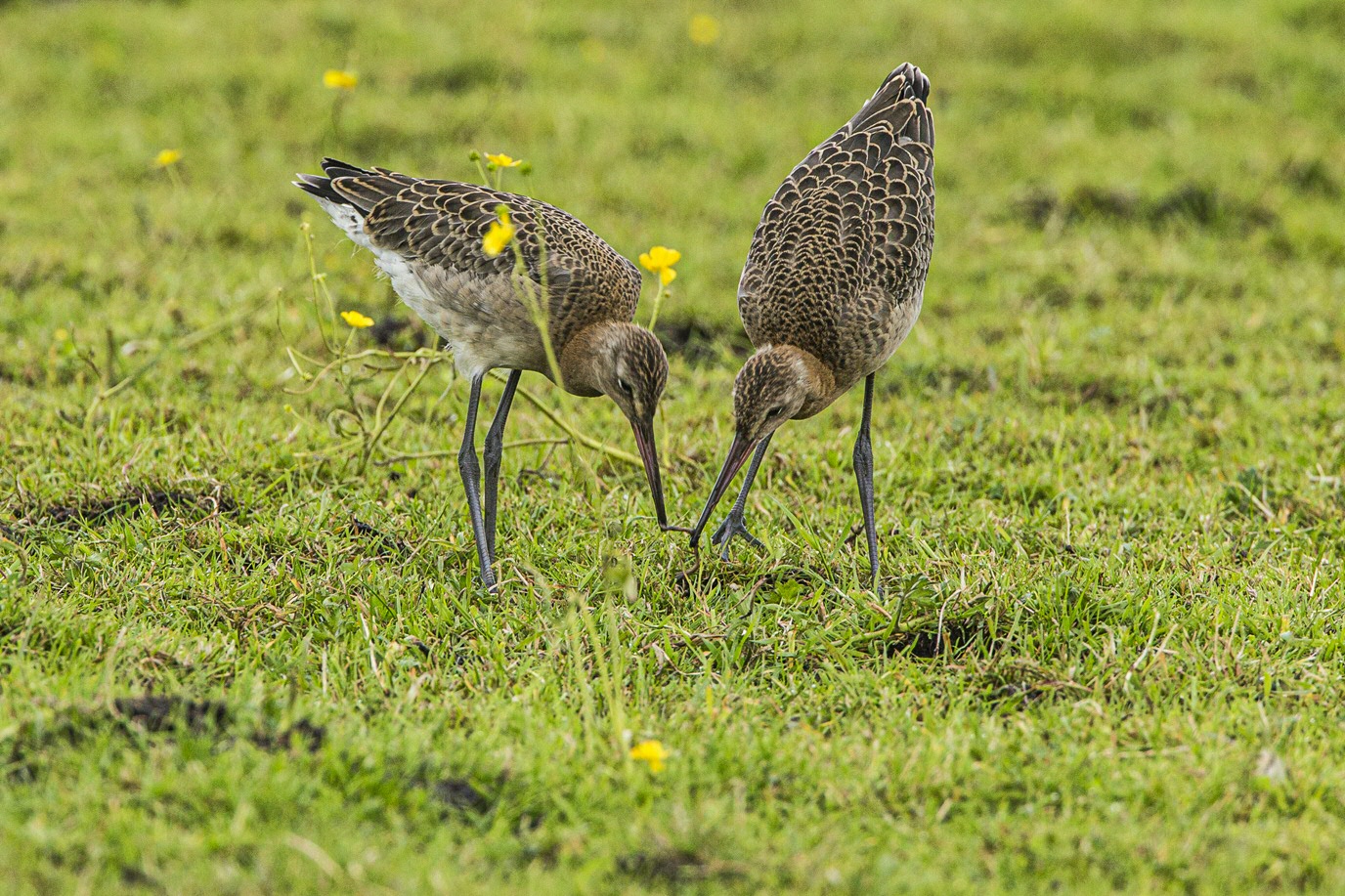Black-tailed godwits ‘go to school’
Black-tailed godwits that flee the nest in Western Europe and spend their winters in Southern Europe and Africa probably learn the migration route from other birds. The migration route is therefore not instilled in their genes. This is one of the conclusions of the thesis with which Jelle Loonstra and Mo Verhoeven will – both! – be awarded a PhD from the University of Groningen on 18 December.
To discover how young black-tailed godwits determine their migration route, the researchers fostered a group of Frisian black-tailed godwits to hatch and grow up in captivity. At the beginning of migration season, they let some of the birds go free in the area from which the eggs were collected. The rest of the birds were taken to Poland, where black-tailed godwits also breed.

‘Go to school’
The ‘Frisian’ birds that had been moved seemed to follow the migration routes from Poland to Africa that other adult Polish birds also used, while the Dutch birds continued the route that other Dutch birds also took. ‘Black-tailed godwits therefore apparently “go to school”. They likely learn from other birds but perhaps also from the rest of their environment,’ explains researcher Jelle Loonstra.
Site fidelity
Loonstra and Verhoeven carried out their research by following both chicks and full-grown birds with the help of transmitters. Minuscule transmitters were placed on the downy feathers of chicks, who could then be traced by an antenna to determine their use of the landscape and their survival. Fully grown birds were given slightly larger transmitters that could be followed by satellites across the whole world. In this way, the migration routes could be followed and the researchers were also able to look at the site fidelity of the birds – how loyal they were to their territories – in the breeding season and in the winter. This seemed to particularly be the case in winter; the birds returned to the same spots year after year.
Demise
Verhoeven and Loonstra carried out their research in Southwest Friesland, where the causes of the demise of wading birds is being studied by other researchers. ‘Through our research, we are making the biological puzzle of the black-tailed godwit a little more understandable. To this end, for example, we also looked at the differences in the survival rate between male and female birds,’ explains Verhoeven.
Protection of wading birds
Verhoeven continues: ‘If you want to protect these and other waders better, you need to understand this type of information regarding the demographics and migration behaviour of the birds. Our research also shows that when studying a species, you really need to start at day 0 of their life. Only then can you begin to understand the differences that arise later on.’ ‘This research also contributes in a direct sense to the protection of waders,’ thinks Loonstra. ‘Protection starts with knowledge and fascination. Knowing how the migration patterns of these birds work absolutely contributes to the fascination for wading birds!’
More information
- The research for the thesis written by Mo Verhoeven and Jelle Loonstra was partly made possible by the Spinoza Prize that the Dutch Research Council (NWO) awarded to Professor Theunis Piersma in 2014, as well as additional contributions from private donors.
- Title of the joint thesis: On the Behaviour and Ecology of the Black-tailed Godwit; supervised by Prof. T. Piersma and Prof. C. Both.
More news
-
15 September 2025
Successful visit to the UG by Rector of Institut Teknologi Bandung
